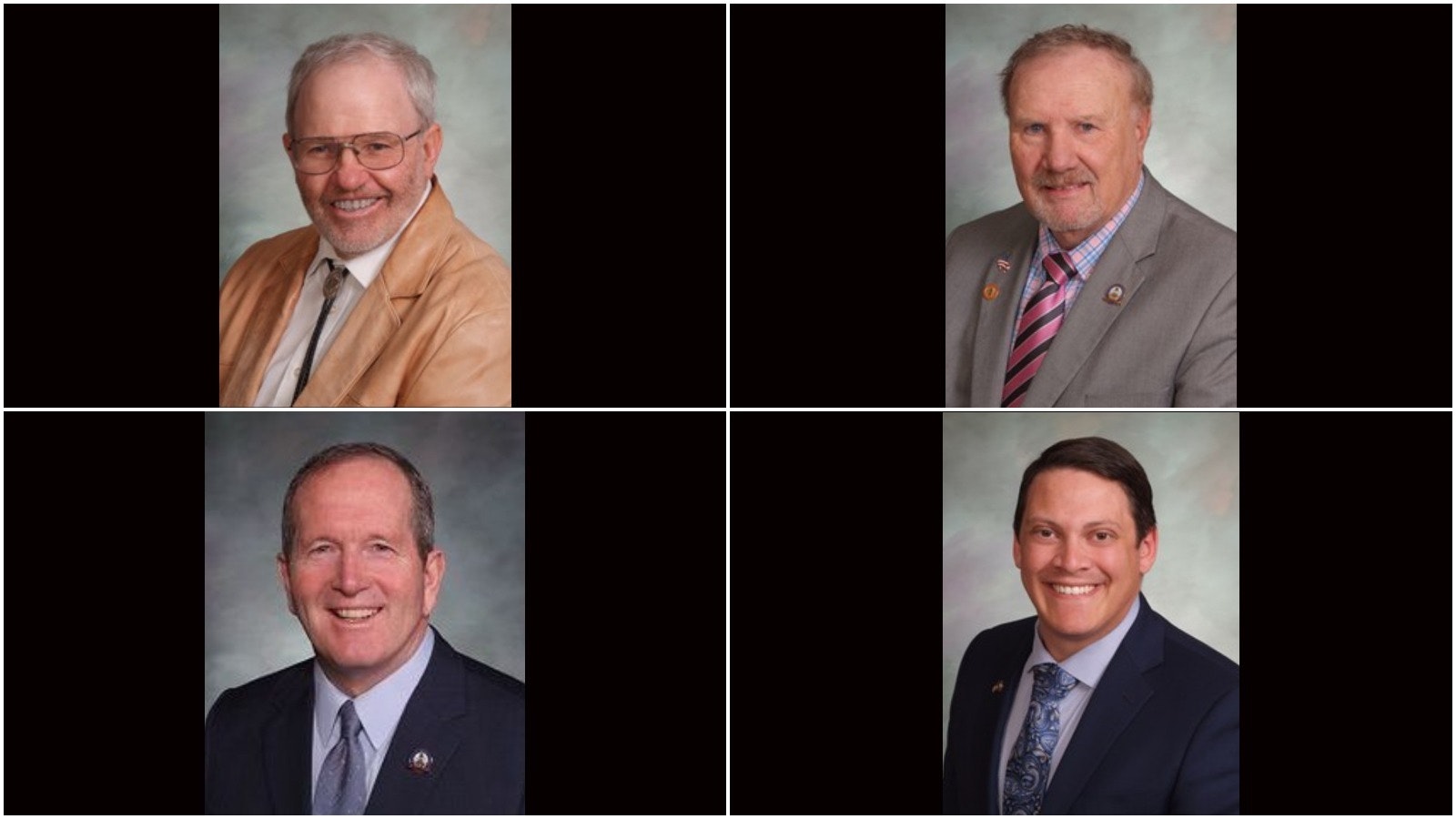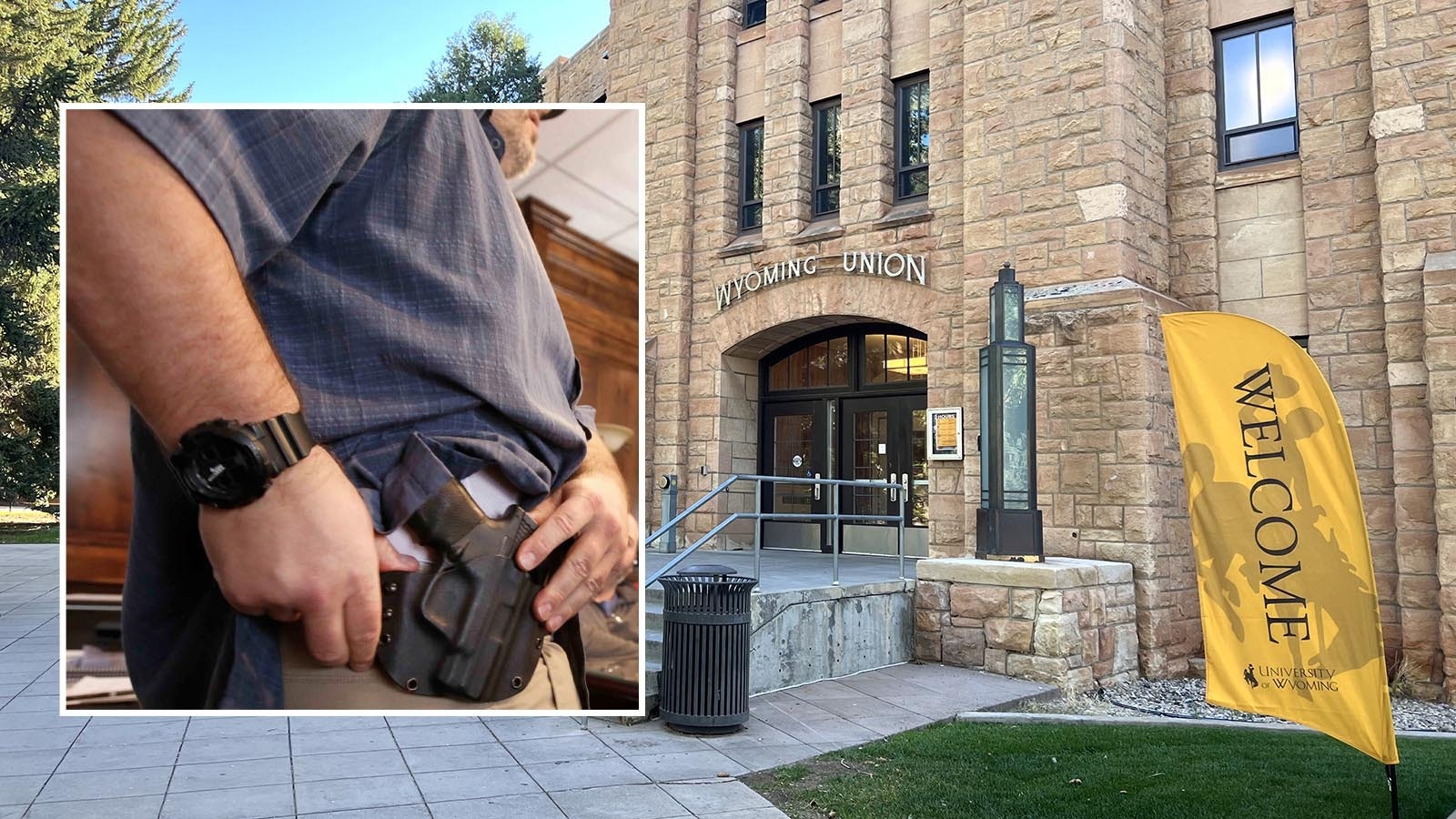By Rep. Albert Sommers, Rep. Jerry Paxton, Rep. Steve Harshman, Rep. Landon Brown, guest column
Several news articles have appeared recently about the Wyoming Legislature’s failure this past session to solve the K12 education funding shortfall. Due to the lack of legislative action, Governor Gordon is developing a committee to review K12 education, and to develop a “customer based” approach.
Superintendent of Public Instruction Jillian Balow’s April 30 op-ed in the Casper Star-Tribune suggests a committee should develop a five-year plan for education funding. Superintendent Balow believes that the K12 “basket of goods” should be updated, and that Wyoming needs “a newer version of our K12 system that teaches for a 21st Century economy and is fiscally sustainable.”
Is our educational system not competitive with other states? Is it not adequately educating Wyoming’s children Based upon a compilation of the National Assessment of Educational Progress (NAEP) scores, the nation’s report card, in 2019 Wyoming ranked 4th, behind only Massachusetts, New Jersey, and New Hampshire.
In 2017, the Legislature hired Augenblick, Palaich and Associates (APA) to review and compare Wyoming’s educational program (“basket of goods”) and its standards with those of other states. According to APA, “Wyoming’s Education Program is well aligned in most content areas with regional and high performing comparison states.”
Some believe that if we reduce our “basket of goods” we can reduce expenditures on education, without repercussions from the courts.
Our “basket of goods” consists of the following content areas: Reading/language arts; Social studies; Mathematics, Science; Fine arts and performing arts; Physical education; Health and safety; Humanities; Career/Vocational education, Foreign cultures and languages, Government and civics (including state and federal constitutions); and Computer science.
Which of these educational opportunities should we eliminate for Wyoming’s children, and would it save the state any money?
Wyoming’s K-12 Education School Foundation Program (SFP) is facing a $250 million annual structural deficit, and the School Capital Construction Account (SCCA) faces a $50 million annual shortfall.
Wyoming is like other states; we fund our schools with property taxes. The difference in Wyoming is that minerals pay half of our property taxes. Specifically, coal production has declined in the last ten years from 450 million tons per year to just over 200 million tons, which is a loss of nearly $400 million in state revenues.
To close the “coal gap,” the State must create new revenues (taxes), redirect current funding streams, or reduce spending. The common-sense approach would be a combination of these.
The Wyoming Constitution requires the Legislature to fund an equitable education “adequate to the proper instruction of all youth in the state.”
Due to failed negotiations on the last day of the session, Wyoming’s schools will require a $331 million transfer from the Legislative Stabilization Reserve Account (LSRA), the state’s “rainy day” fund, to maintain operations.
To close the K12 structural shortfall, the Wyoming House of Representatives passed House Bill 173 by a 41-19 vote. HB173 leveraged spending reductions, revenue flows that are headed to savings, federal stimulus funding and a half-percent sales tax for education, triggered only if state reserves were to fall below a critical level. House Bill 173 would have solved about 85% of the K12 SFP funding gap.
Wyoming should continue to look for efficiencies in funding K12 education. It is imperative that Wyoming continue to examine its K12 educational program to remain relevant in an ever-changing world.
However, Wyoming has lost 250 million tons of coal production per year and the taxes generated from it. Wyoming needs a comprehensive solution to education funding that includes reduced spending, redirecting existing revenue flows, and new revenues.
Sincerely,
Albert Sommers
Wyoming House of Representatives
House District #20
Jerry Paxton
Wyoming House of Representatives
House District #47
Steve Harshman
Wyoming House of Representatives
House District #37
Landon Brown
Wyoming House of Representatives
House District #9





